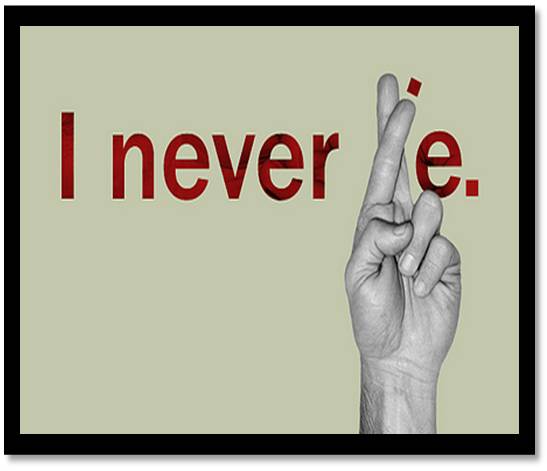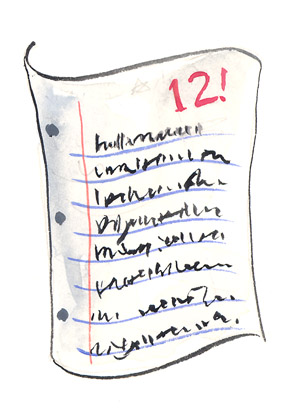Hello and welcome to my pro tutor’s SAT prep blog! Be sure to join my email list while you’re here and I’ll send you even more subscriber-only test prep content and bonuses.
This massive post ended up being longer than I expected – but, if you’re looking for a pro tutor’s reference document on the SAT essay, this will be worth your while.
Please make use of the comments field at the end of the post to ask further questions, and provide suggestions and ideas that have worked for you!
“Plan and write an essay in which you develop your point of view on this issue. Support your position with reasoning and examples taken from your reading, studies, experience, or observations.”
What is the SAT Essay?

See the directions at the start of this post? You’re going to be given a random prompt (more on this later) that requires you to follow those exact directions.
Of course, there are a couple of hidden score-improving secrets to the SAT essay that I know about (most people don’t), and these secrets aren’t exactly evident if all you’re doing is looking at the directions for the first time.
But more or less, you’re going to be given a limited period of time to take a side on the prompt and hand-write a one-or-two-page essay that provides a few examples to support your point and follows the basic guidelines of essay writing, along with using some decent vocabulary, structure, and handwriting.
SAT Essay Time Limit:
The 25-minute time limit is pretty ridiculous – not much more than the absolute bare minimum for a human being to come up with an argument and write it down.
Get Exclusive SAT Prep Tips!
I want to send you more tips to help your SAT score, but I need your email address to stay in touch. Enter your email below so I can send you my reports on the SAT and other subscriber-only bonuses.
There is no leniency on this time limit, and if the proctor catches you writing after “time” has been called, you will potentially be kicked out of the SAT testing center and have your scores cancelled (what a waste of time and money!)
You can’t get around it by flipping back to the essay later on in the test either – if you’re caught, you’ll definitely be immediately ejected from the test.
Basically, trying to cheat or game the time limit is not worth it. Although time is tight, you still have enough time to accomplish your task.
What are the SAT essay prompts about?
This question is easier to answer if we start off with a few concrete examples from previous SAT test dates. The following bullet points are examples of actual official SAT essay prompts. I’ve picked “representative” prompts that I think are pretty standard or average:
- Can people ever be truly original?
- Do people truly benefit from hardship or misfortune?
- Have modern advancements truly increased the quality of people’s lives?
- Is there a value in celebrating certain individuals as heros?
- Should people always be loyal?
- Can common sense be accepted or trusted, or should it be questioned?
It’s worth asking yourself what kind of parallels or similarities you see between these different prompts. The more time you’ve spent thinking about what unifies all the different SAT essay prompts, the less surprised you’ll be on the day of the test.
Here are a few things that I observe, that we might be able to generalize to all SAT essay prompts, more or less (if you come up with different observations, please share them in the comments section after the article!)
SAT Essay Prompts:
- frequently have a “moral” tone to them – “should we or shouldn’t we do something?”
- always have an affirmative or a negative side, without much emphasis on finding middle ground
- deal frequently with themes of society, individuals, and what causes success and failure
- are generally “timeless” issues and human questions, but occasionally are focused on current developments in history and technology
Agree? Disagree? Share your thoughts in the comment section!
Keep your SAT essay perfectly on topic:
This gem of wisdom is one of the most important rules you need to keep in your head while you’re writing.
Believe me, everyone thinks that they’ll be immune to the temptation of wandering off topic slowly, or maybe that their thought process is so naturally logical that an outside reader/grader could never get confused.
The truth is, we’re all vulnerable to this danger. Haven’t you had a conversation with a friend where you were asked a straightforward question, yet you somehow got sidetracked and ended up having a conversation about something completely different?
Then 10 minutes later your friend is like… “wait… but you never answered my question!”
It happens, right? Unfortunately, on the SAT, it will kill your score faster than any other mistake. Every sentence, every example, of your 5-paragraph essay should be going towards staying on topic and supporting your main idea.
Here are some secrets to help you minimize the risk of going off topic (hint: most of them boil down to “Keep your argument simple” and “Think/Plan before you write”):
- Admit that you are human and at grave risk of wandering off-topic unless you retrain yourself to catch this behavior before it happens
- Outline your essay before you start writing
- Think each sentence to yourself before you write it
- Avoid situations where you need several sentences to make your point (keep your points simple, brief, easy-to-support)
- You get no points for complexity, so avoid it at all costs. A great SAT essay usually just makes a simple argument without a lot of complicated nuances and grey area.
- Avoid, avoid, avoid grey area. Just want to repeat this… save the back-and-forth arguing for that 5-page history paper you have coming up in school.
The difference between the “prompt” and the “quote”:
Oddly enough, the essay prompt section begins with a quotation (different for each prompt, of course). This quotation is not actually something you need to respond to or consider in your answer. Weird, huh?
The prompt itself is all you are responsible for answering. The quotation is there to get you thinking, like a mental appetizer for you.
If you completely ignore the prompt, you’ll get a score of zero.
If you completely ignore the quotation, nothing bad will happen. At all.
I myself usually glance at the quotation for fun, and then forget about it. If you don’t feel like reading it at all, you will still be totally fine.
The SAT Essay must be written in pencil:
Seems tyrannical, don’t it?
But them’s the rules – NO pen on the essay, even if you’d much rather use one.
#2 pencils are the only thing you’re allowed to use!
Where should your essay examples come from?
Traditionally, students take examples from school – books, plays, events from history and all that other stuff that you usually write essays about.
However, there’s a little-known secret about the SAT – what examples you use is not nearly as important as how you use them!
I’ve seen perfect-scoring essays written about personal favorite TV shows like Friends, Lost, and Vampire Diaries.
I’ve seen perfect-scoring essays written about made-up books and fictional research studies.

I’ve seen perfect-scoring essays about personal examples.
What I’ve never, ever seen is a perfect-scoring essay that didn’t actually have examples.
Without specific, concrete examples, your argument will remain unsupported and will not convince the grader to give you a good score.
Should I use personal examples for the SAT essay?
Well, right after I got done saying that you can use personal examples, I’m now going to turn around and veto them as an effective way of getting a good score on the essay.
There are several problems with personal examples:
They are often confusing to new readers that don’t know you at all.
They don’t seem very official or impressive (subconsciously this matters).
They, for some reason, just rarely end up in high-quality essays (in my professional experience as a tutor). I don’t know how to explain this.
We’d prefer instead for your examples to come from sources such as these:
- TV shows and movies you like
- Made-up studies or novels
- Your favorite books, if you like to read
- Personal heros that you know everything about already
- Memorable things you learned in school (mainly from History and English)
From all the essays I’ve seen, these 5 categories are the most likely to consistently produce high-scoring essays.
What if I can’t remember dates and details from my evidence?
Good news – the grader cannot and will not take off points if you get your details, dates, names, places, etc wrong.
Not only that, there is absolutely NO fact-checking allowed during the essay-grading process.
That’s right – your essay score is completely unaffected even if the graders KNOW you are lying out your teeth.
Why can I lie on the SAT essay?
The reason behind this? The essay is the only section of the test that is graded by humans.
One grader is a history professor. Another is a professional jazz musician and middle school teacher. Another is a wacky AP Chemistry teacher.
They all have different areas of specialization. They can all catch (and overlook) different types of factual errors.
If this is part of the grading process, the SAT is no longer “standardized.”
So, the College Board just said – “forget it, graders just aren’t allowed to evaluate facts for accuracy.”
So I can seriously just lie on the SAT essay without losing points?
Yup.
Warning – it can be time-consuming to make up examples/lies from scratch if you don’t know what you’re doing and have some practice.
How is the SAT essay graded?
The actual process of grading an SAT essay is as follows –
- You take your SAT and turn in your test booklet
- Bubble sheets for multiple choice are mailed to processing and go through a Scantron machine for quick scoring
- Your handwritten essay is scanned into an electronic distribution system
- Two trained graders individually review and score your essay on a 1-6 scale. The two scores are usually identical. They are added for a 2-12 final score.
- If the graders give significantly different scores, a third “expert grader” is called in to make sure everything is be graded fairly and accurately.
Length influences your SAT Essay scores:
Longer SAT Essays typically score better, all else being equal.
You’ll be given two pages of blank lined paper to write your essay on.
Try to use both of them.

Definitely shoot for a minimum of a page and a half. It won’t be hard.
Just make sure you budget your different paragraphs to make sure they’re proportional (intro and conclusion paragraphs should be similar lengths; your body paragraphs should be the longest and also approximately equal in length)
What do you gain points for on the essay?
Really, you don’t “get” points on the SAT essay – you just avoid losing them.
Basically, don’t mess up, give them what they want, keep things neat, use specific concrete examples and try to get some cool vocab in there.
What can you lose points for?
Focus more on not losing points – you gotta play this a little defensive.
Some major, common stuff that causes you to lose points:
- Going off-topic or not answering the prompt
- Not providing concrete evidence, relying instead on unsupported generalities
- Difficult-to-read (bad handwriting, grammar, or frequent misuse of vocabulary)
- Disproportional analysis (when your first evidence gets way, way more in-depth than later evidence, whether it’s because you’re running out of time, running out of energy/ideas, or your later examples are simply not very good)
Further Reading:
What is the Best SAT Essay Length?
How to Write a Great 5-Paragraph SAT Essay
The Top 10 Tips for the SAT Essay
Does Your SAT Essay Score Matter?
Top 5 Historical Examples for the SAT Essay
Additional Resources:
Write the Best SAT Essay of Your LIfe! (e-Book)
Top 30 Examples to Use as SAT Essay Evidence (e-Book)
Conquer SAT Vocabulary (Video Course)
Wait a sec – did you learn anything interesting or useful from this article? I have plenty more SAT prep tips for my mailing list subscribers plus exclusive test-prep bonus downloads!


















Magnificent web site. Lots of helpful information here.
I am sending it to several pals ans also sharing in delicious.
And obviously, thank you on your sweat!
Well, this is obviously spam, but it’s the most interesting spam I’ve seen in a while.
Go share in the delicious, little spambot